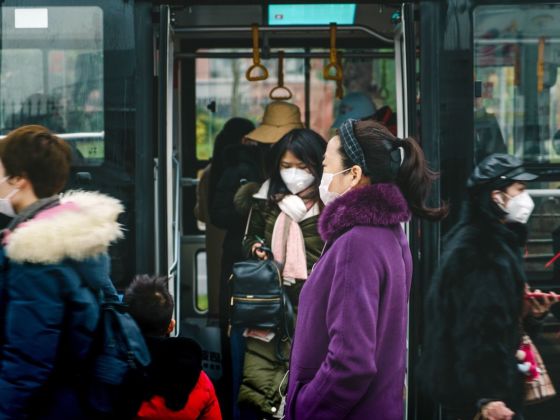An outbreak of human coronavirus, a virus causing respiratory illness in people, was detected in China in December 2019. It is rapidly spreading, affecting almost every country in the world. The World Health Organization (WHO) has declared the outbreak a pandemic and a global emergency. Here is everything you need to know about the new coronavirus.

This is a developing story. This piece was last updated on March 19, 2020.
- What do travelers need to know about the coronavirus?
– Air travel
– Cruise ship travel - What is the coronavirus?
- Where did the coronavirus outbreak start?
- How can one be infected by the new coronavirus?
- What are the symptoms of the new coronavirus?
- Is the new coronavirus dangerous?
- Can the new coronavirus be treated?
- How to prevent being infected by the new coronavirus
What is the coronavirus?
There are seven types of human coronavirus known in the world, including the infamous SARS and MERS, which had outbreaks in 2003 and 2012-2013. The new coronavirus, or novel coronavirus, is scientifically named COVID-19. It is the first time scientists have encountered this particular coronavirus, which causes respiratory illnesses.
Where did the coronavirus outbreak start?
The coronavirus was first detected in the city of Wuhan, Hubei Province, China, at the end of December 2019. It is believed that the virus started from an animal source from the Wuhan live wildlife market and is currently being passed from human to human. The exact source of COVID-19 is currently unknown, but some studies have revealed that it may have originated in bats.
How can one be infected by the new coronavirus?
Like many other respiratory illnesses, the new coronavirus is believed to be transmitted from human to human by respiratory droplets when one sneezes or coughs. According to the Centers for Disease Control and Prevention (CDC), the virus can also be contracted from touching infected surfaces or objects, but this is not the main way the virus spreads. Studies estimate that the virus can remain infectious for 72 hours maximum and only on certain surfaces, but that disinfectants and higher temperatures can make it inactive.
The average incubation period (the time between the infection and the apparition of symptoms) for COVID-19 is five to seven days; the maximum is 14 days.
What are the symptoms of the new coronavirus?
Symptoms include fever, cough, and shortness of breath. The new coronavirus can cause pneumonia or bronchitis.
Is the new coronavirus dangerous?
The new coronavirus can cause severe pneumonia and bronchitis. People with cardiopulmonary or cardiovascular diseases, weakened immune systems, children, and elderly people are the most at risk.
The World Health Organization reports that three to four percent of those infected by the virus have died.
Can the new coronavirus be treated?
Being a new virus, there is currently no treatment or vaccine against COVID-19. The only thing medical professionals can currently do is alleviate the symptoms of the patients infected.
How to prevent being infected by the new coronavirus
The WHO and the CDC recommend that you:
- Wash your hands regularly with soap and water or an alcohol-based hand sanitizer
- Cover your mouth when coughing or sneezing, and wash your hands afterward
- Throw all used tissues away, and wash your hands after use
- Do not touch your eyes, mouth, or nose with unwashed hands
- Avoid contact with anyone who coughs, sneezes, or has a fever
To prevent others from getting infected:
- Stay at home if you feel ill, and avoid contact with others
- Thoroughly wash the objects and surfaces that you may have touched
What do travelers need to know about the new coronavirus
Travel is not advised during this time. Borders are closing, and airlines and cruise ship companies are suspending their services. Self-isolation at home or wherever travelers are currently located, is the recommended course of action.
Air travel
The CDC recommends avoiding non-essential plane travel. The WHO does not advise travelers to wear a mask during flights unless they are accompanying someone who’s ill or are ill themselves. During a flight, follow the WHO and CDC recommendations below:
- Wash your hands regularly with soap and water or an alcohol-based hand sanitizer.
- Cover your mouth when coughing or sneezing, and wash your hands afterward.
- Throw all used tissues away, and wash your hands after use.
- Do not touch your eyes, mouth, or nose with unwashed hands.
- Avoid contact with anyone who coughs, sneezes, or has a fever.
Cruise ship travel
The CDC recommends that all travelers avoid cruise travel. The travel advice is echoed by the US Department of State, which recommends that “U.S. citizens, particularly travelers with underlying health conditions, should not travel by cruiseship.”